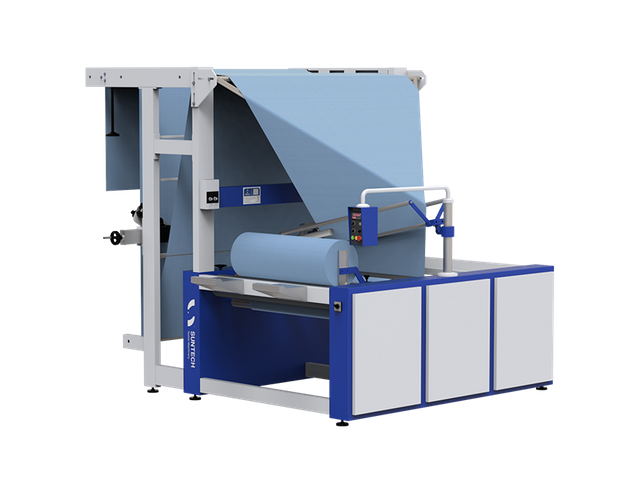The textile industry is constantly evolving, and businesses are always on the lookout for ways to enhance their operations and brand identity. One effective strategy is private labeling fabric folding machines. This approach offers numerous advantages, from cost savings to brand differentiation. In this article, we will delve into the benefits of private labeling fabric folding machines and how it can be a game-changer for your textile business.

What is Private Labeling?
Private labeling involves manufacturing products by one company and selling them under another company's brand. This practice is prevalent in various industries, including textiles. When it comes to fabric folding machines, private labeling allows textile companies to offer high-quality machinery under their own brand name, without the need for extensive research and development.
Advantages of Private Labeling Fabric Folding Machines
There are several compelling reasons to consider private labeling for fabric folding machines:
- Cost Efficiency: By opting for private labeling, companies can save on the costs associated with product development and manufacturing. This allows them to allocate resources more effectively.
- Brand Differentiation: Private labeling enables businesses to create a unique brand identity. This can be particularly beneficial in a competitive market, where differentiation is key to attracting and retaining customers.
- Quality Control: When you private label fabric folding machines, you have control over the quality standards. This ensures that the products meet your specific requirements and maintain consistency.
- Market Responsiveness: Private labeling allows for quicker adaptation to market trends and customer demands. You can introduce new features or improvements without the lengthy process of developing a new product from scratch.
Case Study: Successful Private Labeling in the Textile Industry
Many companies have successfully implemented private labeling strategies in the textile industry. For instance, a leading textile manufacturer partnered with a reputable fabric folding machine producer to create a line of machines under their own brand. This collaboration resulted in increased brand recognition and customer loyalty.
"Private labeling has allowed us to offer top-notch fabric folding machines without the hefty investment in R&D. Our customers trust our brand, and we have seen a significant boost in sales." - Textile Industry Expert
Choosing the Right Fabric Folding Machine for Private Labeling
When selecting a fabric folding machine for private labeling, it is crucial to consider several factors:
- Machine Specifications: Ensure that the machine meets your operational needs and quality standards.
- Manufacturer Reputation: Partner with a reputable manufacturer known for producing reliable and efficient machines.
- Customization Options: Look for manufacturers that offer customization options to align the machine with your brand identity.
For example, the XYZ Fabric Folding Machine is a popular choice for private labeling due to its advanced features and customization capabilities.

Conclusion
In conclusion, private labeling fabric folding machines offers numerous benefits for textile companies. It provides cost efficiency, brand differentiation, quality control, and market responsiveness. By choosing the right machine and manufacturer, businesses can enhance their operations and strengthen their brand presence in the market.
For more information on private labeling and to explore available options, watch this informative video.



